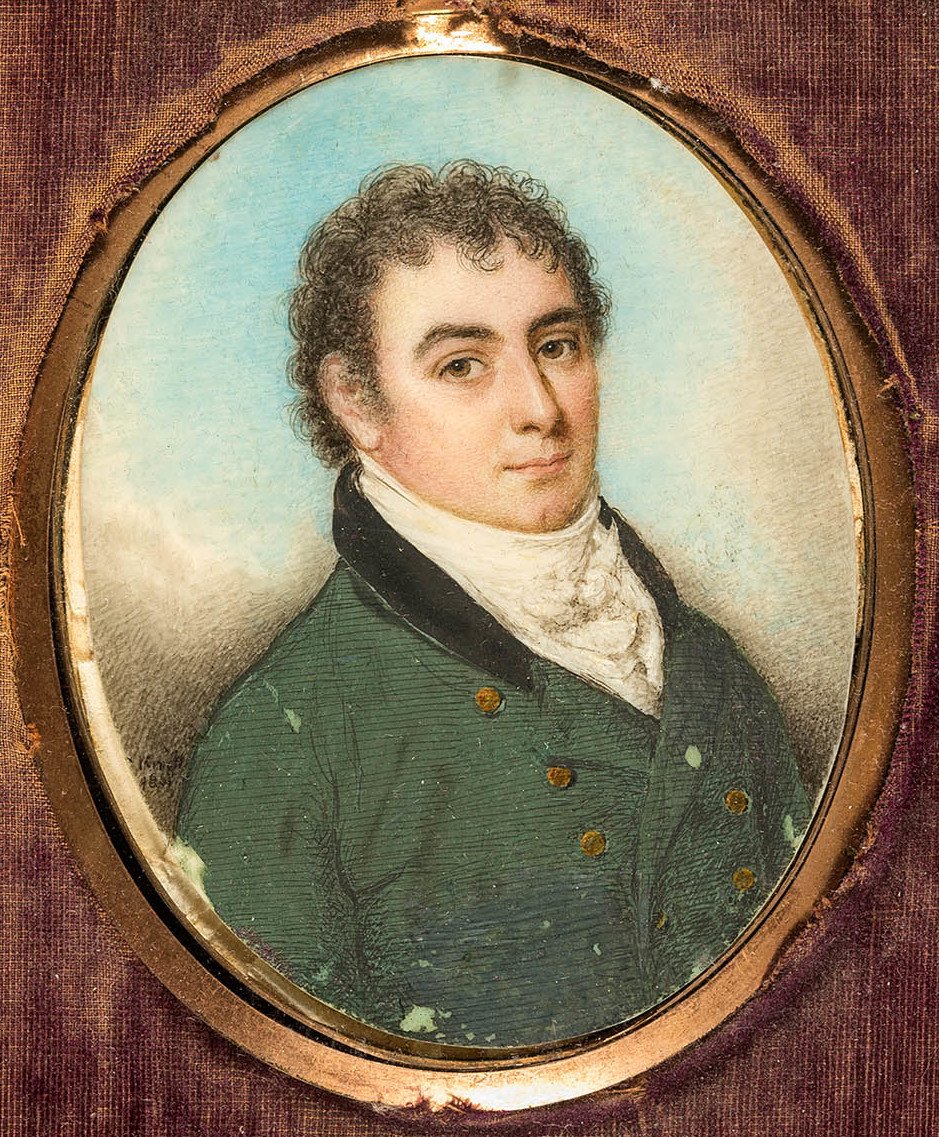An Insignificant Letter
September 2022 Imperfect Union
Sometimes I write about big, meaty subjects. Last month I wrote thousands of words on presidential records, national security, and the executive branch. Important stuff and worth discussing. Other times, I’d like to tell you about a letter I read in the course of my research that stuck with me. It doesn’t really have a lot of “big picture” significance and I’m not using it in my book. But I can’t stop thinking about it and so I thought you might be interested as well.
On February 12, 1798, Thomas Boylston Adams wrote to his mother, Abigail Adams,
"I have not my brother’s facility in writing nor his readiness, nor yet his diligence. This, you will say perhaps, is my own fault. If I thought it such myself, I would endeavor to correct & reform it, but some length of experience has persuaded me, that in these particulars, there is no equality between us."
At the time, Thomas was in Berlin, serving as a secretary for his older brother, John Quincy Adams, the US Minister to Prussia. From time to time, he wrote his mother lengthy updates about their life in Europe, who they met, where they traveled, what he read, and his hopes and dreams for the future.
Thomas Boylston Adams, Massachusetts Historical Society
By 1798, he had been in Europe with his brother for four years and was desperate to return home to the United States, go to law school, and start his own life as an adult. Instead, he felt stuck in Berlin until another trusted individual could be sent to serve as his brother’s aide.
Public service was the Adams family business, so he knew his wishes matter little when stacked against the demands of his brother’s career and the nation’s survival. So, he repeatedly asked Abigail to find another secretary, but remained in place for the time being.
Thomas was the youngest of the three Adams brothers. When he was 2, his father left home to serve in the Continental Congress and then as an American minister abroad. They exchanged letters once Thomas was old enough to write, but they were infrequent and not anchored by a close, in-person relationship. When Thomas was 12, he moved in with his extended family when Abigail departed for Europe to join John.
In contrast, John Quincy spent his first several years with both parents and under the tutelage of tutors. At 11 years old, he traveled to Europe to serve as his father’s secretary, while John represented the new United States as an American envoy. JQA spoke and read at least 5 languages, showed an early aptitude for literature and poetry, and excelled at the law—even if he didn’t like it much. JQA went on to serve as the secretary to Francis Dana, the minister to Russia, before graduating from Harvard, studying law, and receiving his own diplomatic appointments from George Washington.
Thomas did not have the calamitous decline suffered by his other brother Charles, nor did he enjoy the success of John Quincy. Thomas did become a lawyer, but his family acknowledged he probably didn’t have the skills to support himself in his own practice. Thomas had a couple of short stints as a local representative to the Massachusetts legislature and the Circuit Court of Common Pleas, but battled alcoholism his entire life. Meanwhile, JQA served in the Senate, as Secretary of State, and the President of the United States. In 1832, Thomas died, deeply in debt. JQA served another 16 years in Congress, earning the nickname, “Old Man Eloquent.”
As a young boy, Thomas’s family noted his “Talant for satire” and “love for Buisiness, and an excellent faculty in dispatching it. Indefatiguable in every-thing that shall render him a useful member of Society, and independant of the World.” He was no slouch and much beloved by his siblings and parents.
But JQA was probably the smartest, if not one of the top three smartest, presidents we’ve ever had, at least when it comes to pure intellect. Political savvy is a whole other issue, of course. Almost anyone wouldn’t stack up next to him when measuring IQ. While Thomas wouldn’t have known what lay in his brother’s future when he wrote to his mom in 1798, he knew JQA was different.
There is no doubt the Smith family had a long history of alcoholism, which Abigail unwittingly passed on to at least two of her sons. Sometimes our fates are limited by genetics, sometimes they are limited by our upbringing. Thomas might have flourished if he had enjoyed the same attention and education in his early years as JQA. And sometimes, people have the poor luck to be born into the same family as a prodigy.
But boy does my heart go out to poor Thomas. Imagine trapsing around Europe with your brother and his new wife. Everywhere you go, your brother is welcomed with pomp and circumstance as the American minister. Everyone wants to talk to him and probably overlooks your existence as an average secretary. Every time you sit down to write your mother, you know that he’s writing too. And Thomas must have felt that no news he had to share could ever come close.
This letter has stuck with me because it is so very human. I am certain we have all compared ourselves to someone and found ourselves lacking at one point or another. History books rarely remember the siblings or extended family of the famous people, let alone linger on their emotions. Yet they existed. Their feelings mattered, at least to them.
If we focus on history as a list of names, dates, and events, we risk missing the complexity and kaleidoscope of experiences that surrounded the big names. Even if Thomas wasn’t responsible for the treaties and doctrines penned by his older brother, he reminds us of the common, shared humanity. Which felt like it was worth writing about this month.
